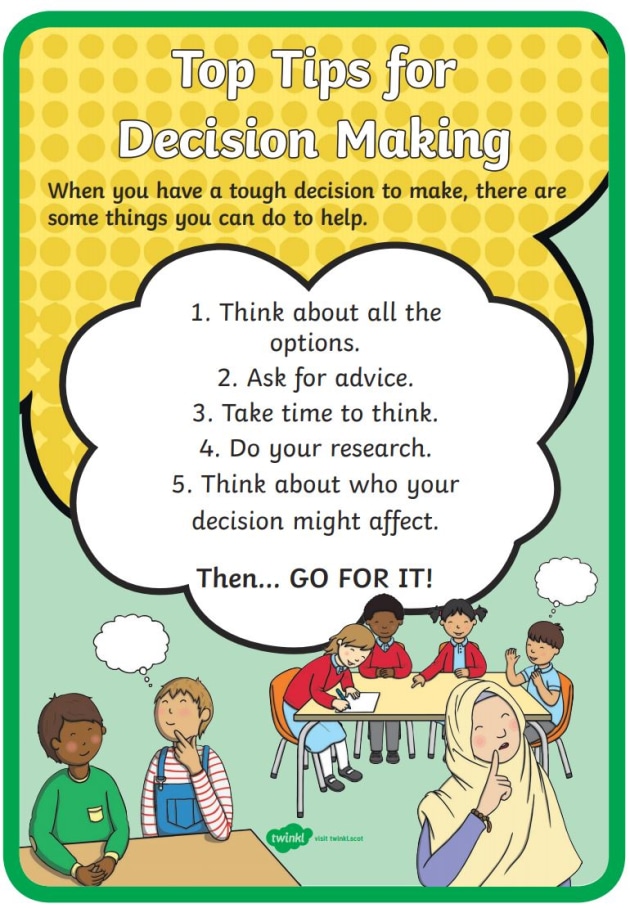In a world brimming with choices, the ability to make decisions efficiently is of utmost importance. From common scenarios like choosing what to eat for the evening meal to critical situations such as career transitions or financial investments, our decision-making skills determine the path of our existences. Yet, a multitude discover themselves grappling with doubt, second-guessing their choices or, even worse, facing indecision by overthinking. The good news is that becoming proficient in the art of smart decision-making is a capability that anyone can develop.
In this piece, we will examine proven techniques to improve your choice-making skills, investigate the mental processes behind great decisions, and discover the importance of intuition and analytical thought. Regardless of whether you're facing pressure in a professional environment or need to navigate personal dilemmas, knowing how to create well-informed and confident decisions can empower you to take control of your existence. Come along as we unpack the strategies that can assist you make wiser choices and avoid the pitfalls that lead to remorse.

Techniques for Effective Decisions
One effective technique for improved decision-making is to establish a transparent framework that helps assess options thoroughly. Start by identifying the challenge you need to solve, then collect relevant information about available choices. Use resources like advantage and disadvantage lists or decision matrices to consider the benefits and drawbacks of each option. This organized approach not only defines your thoughts but also helps you stay impartial, reducing sentimental influence that can obscure judgment.
Another significant aspect is to apply the skill of mindfulness. Taking a short time to reflect can significantly improve the quality of your decisions. Mindfulness encourages you to be aware in the moment, allowing you to clear your mind of interruptions and focus on the decision at hand. By training yourself to slow down and assess your feelings and thoughts, you can make more intentional and deliberate choices that align with your values and goals.
Finally, involving additional people in the decision-making process can enhance the outcome. Working together with peers or seeking input from trusted individuals encourages varied perspectives and insights. This collective effort can lead to a more holistic understanding of the options at hand. However, make sure to manage this process efficiently to avoid getting sidetracked in debates, which can lead to decision fatigue. Striking a balance between collective input and decisive action is crucial to making solid decisions.
Comprehending Choice-Making Psychology
Decision-making is deeply entrenched in the study of the mind, affecting how we analyze information and deal with choices. Our preferences, experiences, and mental shortcuts influence our conclusions, often in ways we may not even be aware of. For instance, a tendency to seek information that confirms our beliefs leads us to prefer information that matches with our current beliefs, possibly clouding our decision-making. Acknowledging these psychological factors is key for cultivating effective decision-making .
Emotional intelligence plays a crucial role in our decision processes processes. Our emotions can guide us toward certain choices while diverting us away from others. Recognizing our feelings allows us to balance feelings with rational thought. This equilibrium can boost our capacity to make well-informed decisions, especially in stressful situations where focus and composure are vital.
Understanding the mental processes behind decision-making also includes acknowledging the impact of indecision. Many individuals struggle when faced with vague outcomes, leading to inability to decide. By training ourselves to embrace uncertainty and adopting strategic frameworks, we can grow more adept at maneuvering through complex choices. This approach not only fosters confidence but also promotes a more assertive mindset in decision-making situations.
Overcoming Indecision and Boosting Self-Assurance
Ambivalence can often stem from fear of making the wrong choice, causing to paralysis by overthinking. To conquer this psychological block, it is important to change your focus from potential mistakes to opportunities for development. Start by recognizing that no choice is final; every choice offers important lessons, irrespective of the outcome. Accept the concept that making choices is a skill that can be developed. By reminding yourself that it's common to feel uncertain, you can lessen tension and boost your willingness to act.
Developing self-assurance in your determining abilities entails rehearsal and introspection. Establish a routine for reviewing past choices, both positive and unsuccessful. Reviewing these events helps you identify habits in your thinking and recognize what was effective or didn’t. Furthermore, creating small, attainable goals can empower you to make choices more promptly. Click here for more , no matter how minor, forms to a increasing sense of self-belief and assertiveness in your decision-making capabilities.
Finally, boosting self-assurance means proactively seeking help and input from trusted peers or advisors. Getting involved in open discussions about your challenges can provide different viewpoints and choices you may not have before considered. Remember that seeking guidance is a positive trait, not a drawback. Incorporating these habits into your daily activities fosters a nurturing environment that facilitates swift action while reducing the worry of failure. In the end, enhancing your decision-making self-assurance comes from a combination of self-reflection, practice, and joint input.
